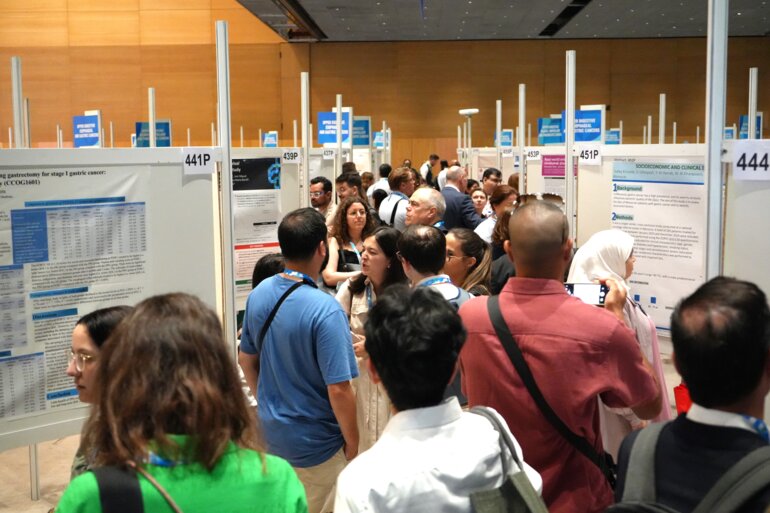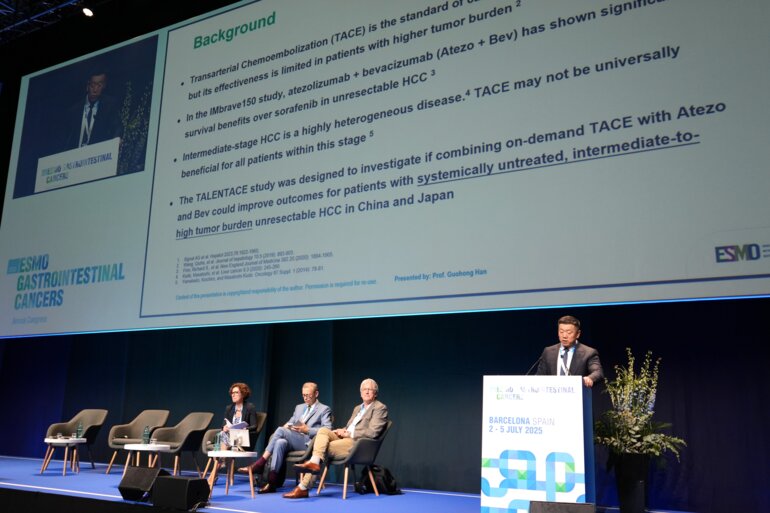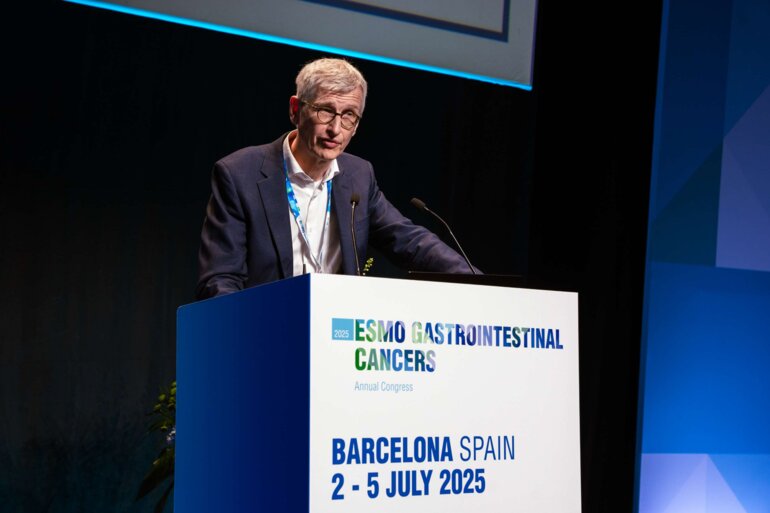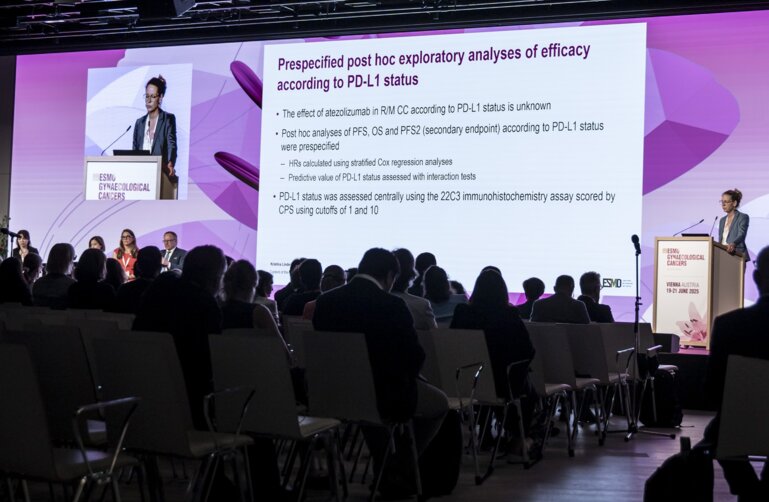
ctDNA testing may help refine surveillance strategy for colorectal cancer
Study findings show that ctDNA is a stronger biomarker than carcinoembryonic antigen to select patients who may benefit from metastasis-directed therapy

Promising activity reported for olaparib in advanced biliary tract cancers
Study indicates that PARP inhibition could extend treatment options for patients with biliary tract cancers

Prolonged intertreatment interval improves outcomes to EGFR rechallenge in metastatic colorectal cancer
Randomised trials and real-world data propel the anti-EGFR rechallenge approach towards standard of care, but more solid evidence is needed

Quality of Life data in immune oncology trials: from side note to centre stage?
Despite greater attention being given to treatment effects on patient wellbeing, the high heterogeneity of methodologies still limits the usefulness of QoL assessment

Atezolizumab and bevacizumab after transarterial chemoembolisation prolongs progression-free survival in unresectable hepatocellular carcinoma
Data from the TALENTACE trial add to growing evidence supporting the combination of immunotherapy plus anti-VEGF component with TACE

Combinations show promise in hepatocellular carcinoma populations with poor prognosis
Encouraging data were presented for FGF19-positive tumours and those with worse hepatic function, performance status or advanced vascular invasion

Givastomig combined with immunochemotherapy shows clinical activity in metastatic gastro-oesophageal adenocarcinomas
Preliminary results revealed that the combination of claudin 18.2/4-1BB bispecific antibody with nivolumab and mFOLFOX was also well tolerated

AI-driven tool shows to improve risk stratification in colorectal cancer
A system integrating computer tomography scans and pathological markers offers promise to personalise adjuvant therapy

Data show that mirvetuximab soravtansine-gynx improves outcomes regardless of HRD status
Final analyses of the PICCOLO trial confirm the efficacy of the antibody–drug conjugate in recurrent platinum-sensitive ovarian cancer

Atezolizumab added to chemotherapy and bevacizumab is effective regardless of PD-L1 status in untreated recurrent and metastatic cervical cancer
An analysis of the BEATcc trial showed that PD-L1 is not a robust biomarker for response to treatment
